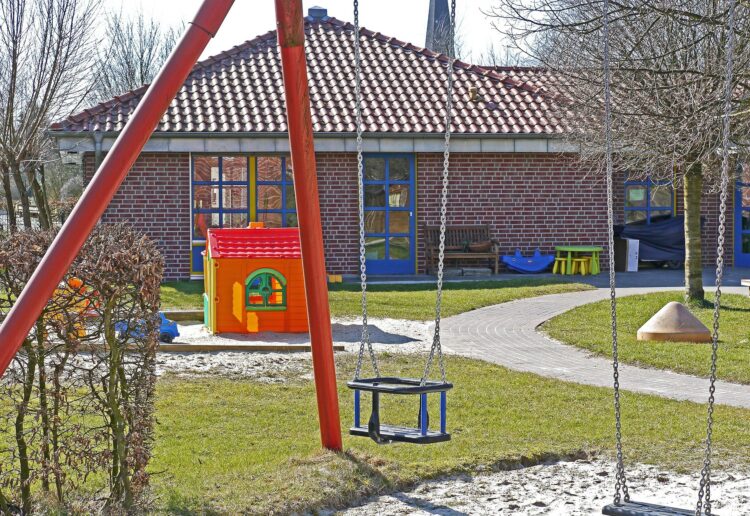
By Louise Timlin
We have the second most expensive childcare in the world.
Years of underfunding from our government have made childcare unaffordable for many families. Two-thirds of parents in the UK are spending more on childcare than on their mortgage or rent.
Amid reports that there are more job vacancies in the UK than job seekers, the previous Chancellor and Work and Pensions Secretary stated in June that they wanted to get more people on benefits into work.
Kwasi Kwarteng, current Chancellor, announced new rules in the mini-budget for part-time workers to increase their hours or face having their benefits reduced.
The cost of childcare is not being considered in any of these announcements despite estimates from The Women’s Budget Group that there are 1.7 million women in England who cannot take on more paid work due to the cost of childcare.
The current government seems unable to recognise that lack of affordable childcare is a huge barrier to parents, especially single parents (90% of whom are women), from taking on paid work or more hours.
I would love to see robust measures announced to help parents with childcare costs, giving parents a realistic choice around increasing their paid working hours, particularly given the current cost of living crisis which is already affecting local families.
A recent Guardian article quoted the Chief Executive of Wokingham Citizens Advice, Jake Morrison, on the increasing numbers they are referring to the local food bank. https://www.theguardian.com/business/2022/aug/31/crisis-support-demand-soars-citizens-advice-uk
When I had my children and returned to work in 2009, I paid around £2,000 per month for a local full-time nursery for a baby and a toddler.
An unaffordable figure for many families.
Things have only got worse since then.
The cost of childcare is rising faster than wages. Local mum, Laura, told me that when she went back to work part-time, three-days a week, she was paying £640 per month just for two days of childcare and this took up 40% of her take-home pay. Both Laura and I know mums who went back to work who were paying more for childcare than they were earning. Other cost issues include the up-front fees charged by most nurseries.
Given we have the third worst ranking maternity pay in Europe, if you are returning to the workforce after maternity leave good luck with finding a month’s fees for a deposit before you’ve even earned your first pay packet.
I spoke recently to a local grandma who is trying to scrape together the nursery deposit that would enable her daughter to get back to work. She’s not sure she will be able to. What happens then?
Cost is not the only barrier to accessible childcare. The “full-time” care I had for my children was 8am to 6pm which required manic dashes to and from work, in rush hour, on many occasions. The lack of flexible, realistic options meant that there was no room for unexpected delays, emergencies or sickness.
I’m still hugely grateful to my neighbour who collected them one evening while I was stuck in the snow. Think about the added barriers to find affordable childcare if your working pattern is outside of normal office hours.
I remember visiting nurseries in 2007, while pregnant in order to secure a place, and waiting lists continue to grow. In 2019, only around half of local authorities in England and Wales had enough childcare for parents working full-time and less than one in four local authorities had enough childcare available for children needing after school care, parents working outside normal office hours, disabled children, or those with special educational needs.
During the pandemic, amid reports of local issues, I raised a question to Wokingham Borough Council regarding the availability of childcare locally.
I was assured they would continue to fulfil the requirement of the Childcare Act 2006, to report annually on how they are meeting their duty to secure sufficient childcare, and to make this report accessible to parents.
The link to the report on the WBC website does not work and two weeks after reporting this I’m still waiting to get access to it.
This clearly demonstrates how childcare is not being prioritsed in local politics either.
The Women’s Budget group has long reported that investment in childcare would create at least twice as many jobs as the same investment in construction. https://wbg.org.uk/media/press-releases/wbgs-response-to-government-childcare-ratios/
The Women’s Equality Party (WEP) is the only political party with a policy for free universal childcare. https://assets.nationbuilder.com/womensequality/pages/2512/attachments/original/1495027355/WE_3495_Manifesto_2017_V5_Singles.pdf?1495027355 We have a costed plan that would provide universal childcare of 40 hours a week, 48 weeks a year, to more than three million children from the age of nine months to five years. The number of jobs created, tax paid and Universal Credit savings mean this scheme would be ultimately close to cost-neutral.
You cannot fix the economy, as Liz Truss promises she’ll do, without fixing the childcare disaster.
WEP’s policies are the types of bold policies needed to enable mothers to return to the workforce, to increase the representation of women in key sectors, to reduce the motherhood pay gap and to help families during the current cost of living crisis. Investment in social infrastructure, recognition of the realities of childcare, from cost to availability to quality, and the end of state reliance on women’s unpaid care work is what will make a difference.
Louise Timlin is the Branch Lead, Reading and Wokingham Women’s Equality Party






















